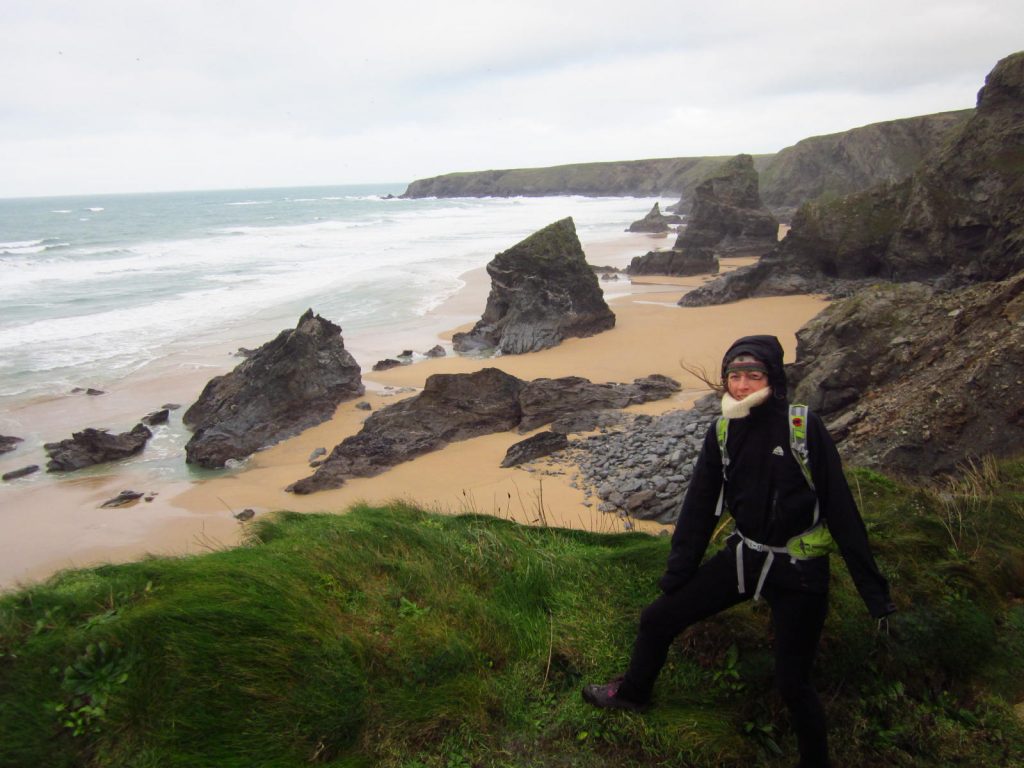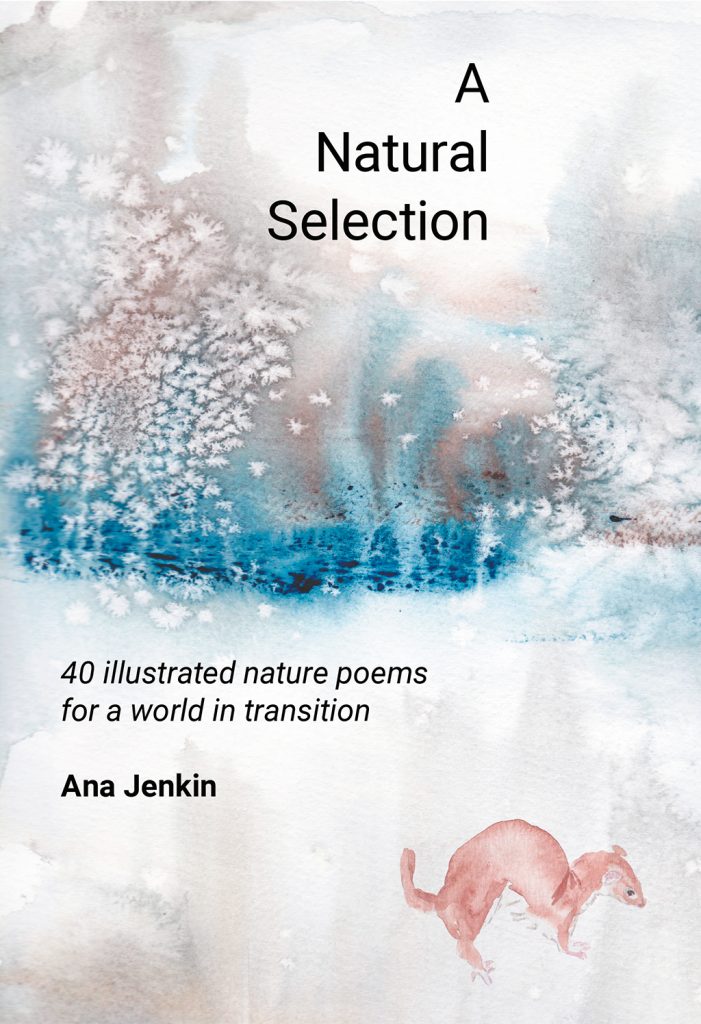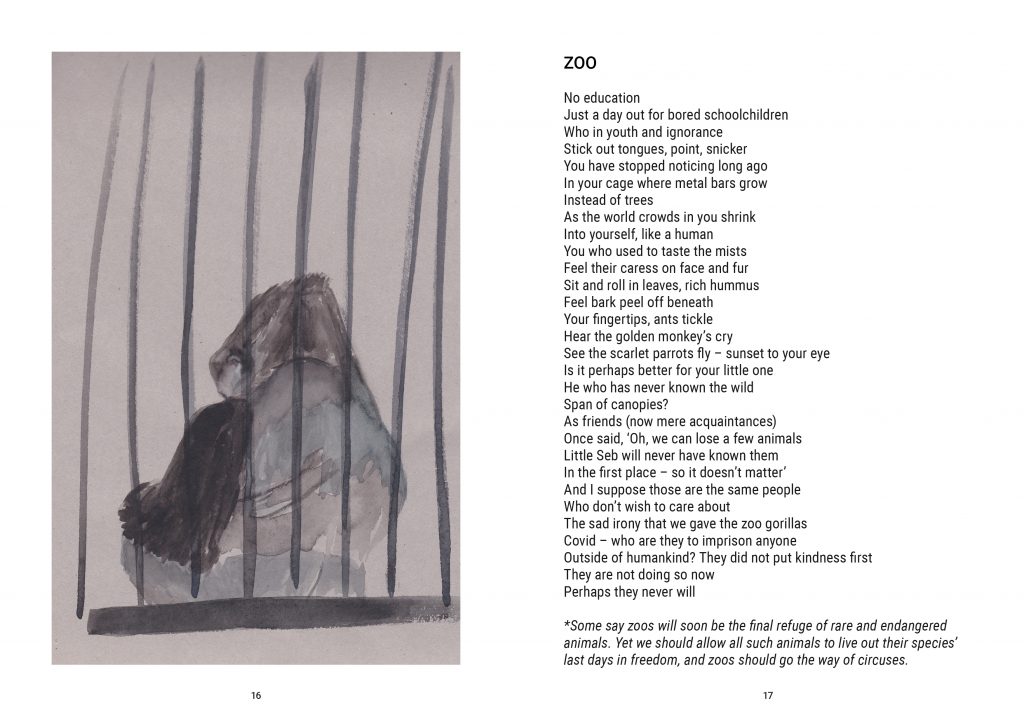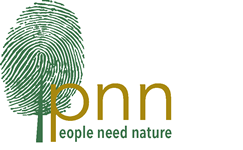Having just published her e-book of poems, ‘A Natural Selection: 40 illustrated nature poems for a world in transition’, Ana Jenkin discusses protest poetry and how it can be used to help Nature and our immediate environment.

Poetry and Protest
‘Fine, forget Instagram, Twitter and branding. At least have a weekly blog,’ urged a particularly insistent friend. At least? A regular blog would surely steal even more time and creativity from me. I would be in danger of ‘becoming’ my blog. No longer able to sit peacefully in the back garden or stroll through the park or a country lane, open to but not desperate for Nature to touch me and, perhaps, inspire me to write a poem. Instead I would constantly be searching for ‘something’ to happen or appear in order to record it for whatever number of followers. Horrifying. Call me paranoid and you’d be right.
Yet here I am, hypocrite, free-rider, on a guest blog, hosted by this beautiful site with clearly so much love and soul in it. Because many of us, in these days of floods, fires and general depletion of nature, wish to be part of something bigger, better, more precious and more powerful. A poem won’t save the world, but a swarm of like minds and poems just might.
In the film version of ‘A Room with a View’ George, soon after he kisses Lucy, shouts from the top of a tree, ‘Beauty! Joy!’ as he comes crashing down through the branches. In the book it is the coach driver who advises Lucy, just before the impromptu kiss, to have ‘Courage! Courage and love’ as the storm clouds gather. Beauty. Joy. Courage. Courage again. And love. That, I think, is how our lives should be lived in this time of turmoil and destruction, and why perhaps I choose to write poetry. While E M Forster’s description of ‘…violets [running] down in rivulets and streams…’ is surely one of the most beautiful passages ever written, I am aware it is easier to feel beauty and joy when my street is not melting, my home not flooding. Not yet.
The other reason for writing nature poetry is that I want to reach out – to those people who already love Nature, but also to those who don’t know it, or think they don’t need it. Because in my opinion it is largely down to education and numbers. Earth stands a far better chance of surviving in her present form, at least for a little longer, if more people begin to love – to truly love – her.
And this, it seems, is the trickiest bit. Grabbing at straws just before self-publishing my e-book of poems, I emailed Dave Goulson, brilliant ecologist, author and founder of the Bumblebee Conservation Trust, to ask him if he would kindly fact check a particular poem (‘Rhododendron’) as it mentions bees. He did! And I later realised, on reading an interview with this extremely busy, yet equally kind and generous man, that he wished to also overcome this very obstacle. If only we could ‘touch’ those disbelievers with Nature’s wand, the world would surely be healed… But how to reach out to those who are underprivileged, live in tiny flats, have little time for, access to, or interest in Nature? Or those at the other end of the social spectrum, well-off families with sprawling lawns covered in artificial grass.
Visiting mostly state schools in my local area in London with my first book of poems ‘In Our Words’ (the private schools, one mother finally explained to me, either want famous authors or already have parents clamouring to read from their own books) and leading nature poetry workshops just before Covid-19 struck was an attempt to reach out. It was one of the most rewarding things I have done. As their perception shifted, so many young minds opened up before me, like snails straining to reach out in the rain – eager to pour forth their thoughts and visions, not quite knowing how, then suddenly arriving to somewhere they felt happy. So much enthusiasm and connection and pride and talent! And while it is of course the big organisations and bodies – from councils to Government – and, sadly, those artificial-turf people who are the ones capable of instigating real change, if more of us, both young and older, start to ‘think global and work local’ we would have the power to push them to do so. As James Lovelock (102) believes, and others increasingly so, we humans have become a plague on this Planet. While many of us are trying to turn the tide of our onslaught, many more are not.
So I’m taking this opportunity of hijacking the People Need Nature blog to urge you all to spread and continue spreading the word – through poetry and any other means – that each one of us is in a position to slow down, to look, to listen, to question, to love, to instigate change.
Talk to your neighbours and suggest they ditch the slug pellets and plant food, read the small print; point to the swallows, an insect, a rainbow in the sky; rally round the parents to put pressure on the local council to swap that diesel-powered ice cream van for an electric model; see if the farmer down the road wants help with planting a hedge; get your street to go electric; promote car sharing; convince frequent mowers of the beauty of the patch of meadow on your lawn – look, speedwell, clover, and a wild strawberry!; print out your poems or prose and put them up around your neighbourhood; share your wildflower and veg seeds if you have any; write emails to your MP; write to the council about any mismanagement of your local park – from the use of Astroturf and weedkiller to the staging of polluting events, expansion of CO2-emitting cafés and restaurants, introduction of mini-golf courses, and the removal of dead trees (write to them lots!); tell drivers to switch off idling engines; get together with like-minded locals and stage peaceful picnic protests; inform people about the damage pets do to the environment, and the inhumanity of keeping them; ask the RHS and your local nursery centre to stop selling peat products altogether, along with intensely bred, nectar-free hybrids; do a spot of guerrilla planting; ask the bus drivers if they ‘really need to charge the engine battery for this long?’… Oh there is so much more, I am sure you are aware, and I know it is a drag, but, like Greta Thunberg, it is important to believe that these are among the most necessary things that we can all be doing right now. Primarily for Nature and by extension for ourselves and future generations.
And nature poetry, I believe, goes a long way. Reading and writing it gives you freedom and strength and joy, which then gives you more freedom and strength and joy… With such weapons, surely we can turn things around? And if we don’t, then at least we’ve tried.
If I sound childish and gushing, it’s because I’m talking about Nature, or perhaps Nature just made me that way. And I’m no expert but there are frogs to count, caterpillars to identify, trees to save, stag beetle hidey-holes to check! However, at the risk of sounding bi-polar (although I have just finished reading ‘The Uninhabitable Earth’ by D Wallace-Wells), I also believe that we have passed one too many tipping points to be able to reign in global warming sufficiently and without resorting to scary processes such as geoengineering. Even if we make a gigantic, concerted effort, the Earth will still end up damaged beyond repair. But what we can and must do, what we owe to everything past, present and future, is to try our utmost to stall the extinction process and patch up Nature as best we can. And I firmly believe that is still in our power to do so.

To try and contribute in my small way, if by nothing else then in spirit, I took the time to write and publish ‘A Natural Selection: 40 illustrated nature poems for a world in transition’ – a plea, ode and protest in one. I chose to publish through Apple Books rather than Amazon, believing the former to be a lesser environmental evil. Because we do still have choices and it is important we weigh them up. I am not sure I made the right decision, but I believe it is crucial to question. Constantly.
You can open three free illustrated poem samples or purchase the e-book (£5.49) by clicking on the link below (the Apple Books app is free to download):
A_Natural_Selection_Ana_Jenkin
Thank you for reading and please keep looking, listening, challenging and protesting!
Ana Jenkin


Comments are closed.